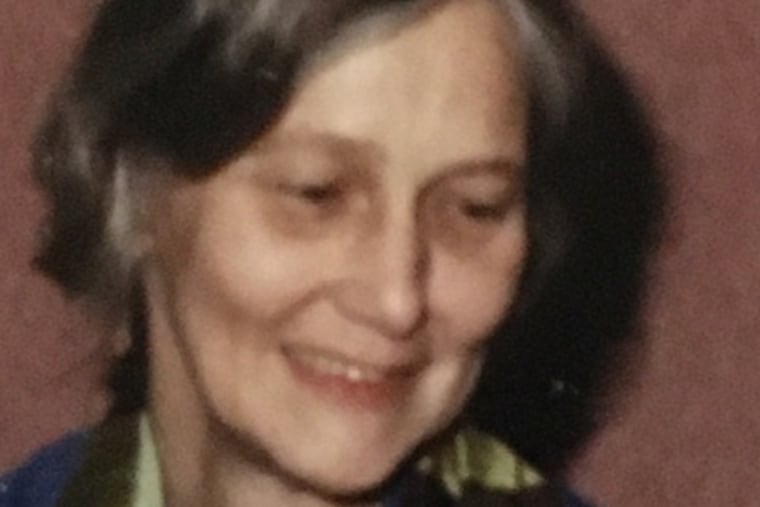Lois Johnson-Hamerman, 91, Pennsylvania Hospital neonatologist who studied newborn affliction
Dr. Johnson-Hamerman immersed herself in research about the harmful effects of too much bilirubin in newborns, and helped the families whose children had suffered its ill effects. Her shoes will be hard to fill, said one of the families.

Services are Saturday, Nov. 2, for Lois Johnson-Hamerman, 91, a retired Pennsylvania Hospital neonatologist who studied kernicterus, a harmful disorder found in newborns, and supported the families of children afflicted with it. The West Philadelphia resident died Aug. 10 of pneumonia at Penn Hospice at Rittenhouse.
Susan Haas, the parent of an infant with kernicterus then living in Virginia, said her husband reached out to Dr. Johnson-Hamerman 17 years ago. Their daughter, Lexi, had high bilirubin levels. She couldn’t walk or talk, but the doctor recognized that Lexi’s intellect was intact.
The advice helped the Haas family manage her condition. “It put us on that path for knowing that this kid would be super smart, so we were able to advocate for her intellectual and educational needs,” Haas said. Mother and daughter have since written a book together.
“She had a huge love for these kids,” Haas said of Dr. Johnson-Hamerman. “She dedicated her life to the research and treatment and prevention of kernicterus. It will be difficult to fill her shoes.”
Dr. Johnson-Hamerman was born in Newcomb, a small town in the New York Adirondacks. Her parents were Edwin C. Johnson, a physician, and Lillian S. Johnson, a registered nurse.
After graduating from Newcomb Central School, she earned a bachelor’s degree from Cornell University in 1949 and a medical degree from the University of Rochester School of Medicine in 1952.
She completed an internship in adult medicine at the University of Minnesota Hospital, and residencies in pediatrics at Children’s Hospital in Cincinnati.
From 1955 to 1958, she pursued advanced study at SUNY Brooklyn. Her focus was bilirubin-dependent brain damage and the genesis of kernicterus.
Bilirubin is an orange-yellow substance made during the breakdown of red blood cells. At normal levels, it passes out of the body without incident. But very high levels of bilirubin are dangerous to newborns who may appear jaundiced and have liver problems, according to the Mayo Clinic website.
Kernicterus is the brain damage that can occur in newborns with too much bilirubin when the disorder goes undetected and untreated.
In 1957, Dr. Johnson-Hamerman married landscape architect Conrad Hamerman. A year later, she became an associate physician at Albert Einstein Hospital and continued her research.
In 1963, the couple moved to Philadelphia, where she became an instructor in pediatrics at the University of Pennsylvania, and an associate physician at both Children’s Hospital of Philadelphia and Pennsylvania Hospital.
She remained at Pennsylvania Hospital for 40 years, while holding various teaching positions at Penn and at Thomas Jefferson University.
She was closely affiliated with Parents of Infants and Children with Kernicterus, (PICK), a support group now run by Susan Haas and others.
Dr. Johnson-Hamerman developed the Kernicterus Data Registry, which helped spur awareness of the need to routinely screen newborns for jaundice before discharging them from the hospital. She also conducted early research into retinopathy, as it occurs in premature infants.
In 1996, Dr. Johnson-Hamerman was awarded the Bilirubin Club Award for her leadership in research on newborn jaundice and prevention of bilirubin injury.
Outside of medicine, Dr. Johnson-Hamerman played the piano and violin. She and her husband were members of the Philadelphia Museum of Art and longtime supporters of the Philadelphia Orchestra, the Pennsylvania Ballet, and the Opera Company of Philadelphia.
She was a longtime member of the First Unitarian Church in Philadelphia. During the 1960s, she was drawn to civil rights activism and the movement against the Vietnam War. She set up a “social concerns table” at First Unitarian each Sunday, her family said.
Over the years, she devoted herself to research but remained interested in politics and never missed voting in an election.
Dr. Johnson-Hamerman’s husband died in 2014. She is survived by a daughter, Sylvia Hamerman-Brown; a granddaughter; a brother; and a sister. Another daughter, Lois Fiametta Hamerman, died in childhood.
A life celebration will be at 2 p.m. Saturday, Nov. 2, at the First Unitarian Church of Philadelphia, 2125 Chestnut St. Burial is private.